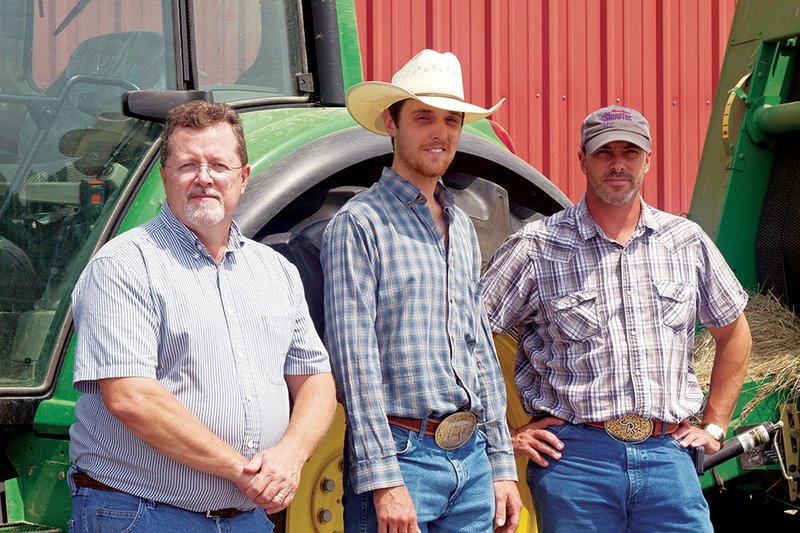Students will soon flock back to school as summer vacation draws to a close. For those pursuing higher education, two-year schools provide a local and cost-effective way to get credits, and the farm at Arkansas State University-Beebe provides specialized hands-on experience for students interested in agriculture.
Chuck Wisdom, assistant professor of agriculture, said the university farm has been an important part of the campus for many years, but people who are not involved in the agriculture program do not know much about the farm. He sometimes talks to people in the community about his work and is constantly reminded that many people have no idea the farm exists.
Students in the agriculture department at ASU-Beebe can work toward an associate degree in one of several emphases, including agricultural business, agricultural education, agricultural science, animal science and plant science. The farm gives students access to interactive lessons in which live animals become an important teaching tool.
“I think we are the only two-year institution that has a working, operating farm,” Wisdom said. “There are other two-year institutions that teach agriculture without it, but it lets us be more well-rounded.”
Farm Manager Brandon Martin knows firsthand how valuable the farm is to the students’ education. He graduated this past spring with a bachelor’s degree after earning an associate degree at ASU-Beebe. He has worked as the farm manager for five years, taking online and night classes to finish his degree while taking care of the farm during the day.
“I’m always trying to improve the cattle and the pastures,” he said of his duties.
Wisdom said Martin has been important to students because of his help in the animal-science labs and the input he provides about what students need.
“He plays a bigger role in that than he realizes,” Wisdom said. “He sets up the labs for me. Very, very, very seldom do I miss, but there have been occasions where I couldn’t come in, and he taught the labs for me.”
Martin said he had a strong background in farming before he arrived, but his education has been helpful in his current work.
“I learned stuff when I went through animal-science classes that I didn’t know,” he said. “The kids that come through, I understand stuff that they may struggle with.”
Wisdom said the university farm is about 400 acres, and the school utilizes 100 acres for agricultural studies. The majority of the other 300 acres are wooded and difficult to access, but the school’s ROTC program sometimes uses that area for GPS training.
Before a tornado hit the grounds in 1999, the university farm was a dairy operation, first having goats, then dairy cows, but Wisdom said he wanted to change the farm to a registered cattle operation when the school had to rebuild the facility. In 2002, the new facility opened, and Wisdom said that with the new animals and buildings, he was excited about the opportunities the farm could offer students.
“The biggest thing we have going over here is we are a cattle operation mostly,” he said. “We’ve got registered Angus, registered Hereford, and then we’ve got commercial cattle. We blend those breeds together to basically make a crossbreed.”
The cattle are used in the animal science labs, and Wisdom said he hopes to add more species at some point.
Also on the farm, Assistant Professor of Agriculture Jerry Sites teaches plant science. His students work in the orchard that contains pears, apples, peaches, nectarines and blueberries.
“My classes will prune the trees and do fungicide application,” Sites said. “I’ll teach them about disease management. If a tree gets a disease, it’s kind of a good thing because I can show them what to look for.”
The farm also provides an area for students in the John Deere program to practice using the GIS/GPS features of the tractors. The John Deere program is not part of the agriculture department. As part of the advanced technology and allied health department, students in the John Deere Agriculture Technology program earn an associate degree in agriculture equipment technology.
Information about the programs utilizing the ASU-Beebe farm can be found at www.asub.edu/academics/divisions-programs/business-and-agriculture/agriculture.
Staff writer Angela Spencer can be reached at (501) 244-4307 or aspencer@arkansasonline.com.
